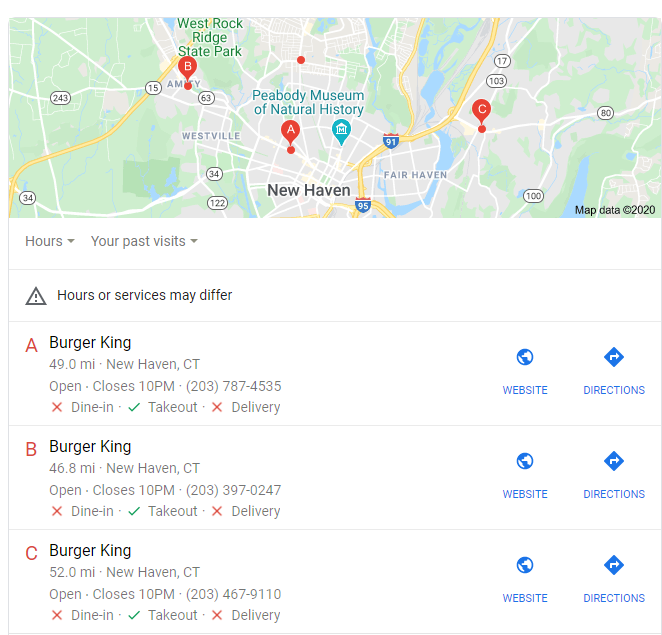We are living in some uncertain times right now with schools and businesses closed, people losing their jobs, etc.
Some industries like travel and tourism are getting hit very hard while some businesses that are ecommerce driven or providing a service that people need (i.e., Zoom) are thriving right now.
Google recently launched a blog post series that features case studies on how SEO can help businesses.
This may help with convincing a boss that investing in SEO or implementing structured data can be good for the business.
In their first blog post, they started out with the basics of investing in SEO and how it helped a company.
All companies should take this seriously because SEO drives most of the traffic and revenue for many brands.
The bottom line is that Google is putting resources behind this to show the value and if SEO if done right, can drive a lot of incremental revenue for your business.
As the pandemic gets worst, user behavior will continue to change end-users will be buying more things online.
While I don’t think that things will return to normal anytime soon, here is a list of five things ecommerce companies can audit, review and/or implement on their sites in order to increase organic traffic and drive more revenue.
1. Updating Business Listings
Managing business hours and store closures is imperative for businesses that currently remain open (i.e., supermarkets, pharmacies, food establishments and gas stations, etc.)
Regulations are constantly changing, and hours are constantly changing so it would be good for businesses to continue to update their hours through local search.
My local Walmart used to be open 24 hours but now when I did a search to see if they are open, it closes at 8 p.m. I’m glad I did that before I drove 15 minutes to the store.
Local search is critical to update businesses that have either temporarily closed or changed their hours.
One of the items I would like to see is real-time inventory in the local search results. I might be dreaming but things like hand sanitizers, bleach, and soaps are hard to find.
If a local search provider and Google were to add inventory in the listings, this would be the ultimate user experience.
The local search results have also been recently updated to show delivery, dine-in, and takeout options which provides a better user experience by giving users valuable information.

In the long term, you want to optimize your business listings to show up in the local search result and for location-based queries.
To do this there are many ways to optimize your business listings, including:
- Getting positive reviews.
- Updating your name, address, and phone numbers.
- Having optimized and localized content.
- Citations.
2. Adding & Updating Structured Data
With all the recent cancellations of events because of the pandemic.
Many companies have moved their events to virtual events. If you search for some events, they might show up as canceled.
One of our clients had the event showing up as canceled in the Knowledge graph but the client wanted it to be update to virtual event, so we did the following.
- Submitted feedback regarding the incorrect time/date.
- Updated the structured data. Google recently added new types of event schema for Virtual, Postponed, and Canceled Events. The client added the code on the web page and the information was updated very quickly in the SERPs.

3. Performing a Technical Audit
There are many issues that plague ecommerce sites from getting good visibility in the search result pages.
Based on my experience, I have seen common issues including:
- Duplicate content because of faceted URLs being indexed and not being properly canonicalized.
- Not having the right redirect strategy. Some brands delete pages once a product is out of stock which is not the correct thing to do. A proper redirect strategy should be set up in place.
- Poor load times because of all a number of different scripts running that might not need to be running making the page heavier increasing load times. Heavy images are also a common problem.
- XML sitemaps that don’t automatically update to add new product pages or categories. If your site has a good structure, your pages should get picked up anyway, but XML sitemaps help, especially if you have a site with tons of pages.
- Pages are not marked up with product schema.
- Bad URL structure with tons on parameters and extra folders which are most likely caused by your CMS.
A technical audit is imperative to help catch errors that can be hurting your site.
4. Creating & Optimizing Content
Having high-quality content that satisfies user intent is more important than ever before.
A lot of ecommerce sites have product pages and descriptions and even category pages that have limited amount of content.
We also live in a world where users are asking questions and those questions with answers should be incorporated into your content strategy to make your content and pages more holistic.
Not everyone that comes to your site is in the purchase phase.
Some users are in the informational stage and want to find out more about the product before they buy it.
For example, it’s hard to get hand sanitizer now but not all hand sanitizers are effective against Coronavirus.
If I come to a site that I’m not familiar with and the site sells hand sanitizer, one of the first questions I want an answer to is: What is the alcohol content? Is it above 65% to kill the Coronavirus?
If the product description and other information on the page can’t answer that question, why would I buy it?
Brands should also do a content audit or have their agency run a content audit of there site to see if there is outdated content that can be updated, removed, or merged with other content to make it more useful and relevant.
5. Google Shopping
Google recently opened up free product listings to the shopping results for merchants.
Retailers will get “free exposure to millions of people who come to Google every day for their shopping needs.”
Out of all my tips, this one is the most important and all retailers must take advantage of this now.
Wrapping Up
SEO is one if not the most important marketing channel for most brands that delivers the best ROI.
Plant the seed now and watch it grow over time to drive incremental revenue and highly qualified traffic for the future as the right policies and procedures are put in place to combat this deadly pandemic.
Google’s algorithm is machine-based and user behavior has changed causing the algorithm to change.
Once the machine learning algorithm continues to learn after user behavior returns to normal, brands that create a good content experience, answer questions, and provide users with valuable information will be listed at the top of the SERPs.
Act now before it’s too late and your competitors are improving their organic performance, leaving you in the dust.
More Resources:
- Impact of COVID-19 on Ecommerce: 4 Ways to Adapt Your Digital Strategy
- Why It’s Time to Plan Your Digital COVID-19 Recovery & 3 Ways to Do It
- SEO in the Age of COVID-19: Organic Impacts on the Retail Industry
Image Credits
All screenshots taken by author, April 2020


